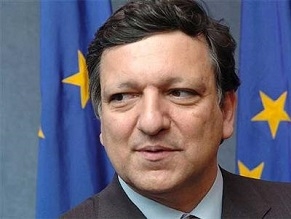|
World Jewish News

The European Parliament (EP) is due to debate Hungary’s recent controversial constitutional amendments at next week’s plenary session in Strasbourg, amid ongoing concern from the EU institutions as to “whether these changes respect EU law”.
|
MEPs to examine ‘the fundamental rights situation in Hungary’ at plenary session, in light of contested constitutional reform
12.04.2013, Jews and Society The European Parliament (EP) is due to debate Hungary’s recent controversial constitutional amendments at next week’s plenary session in Strasbourg, amid ongoing concern from the EU institutions as to “whether these changes respect EU law”.
The debate by MEPs will follow statements by both the EU Council and Commission Wednesday, after EP President Martin Schulz last month expressed “regret” at the decision by the Hungarian parliament to adopt changes to its constitution despite prior lobbying by the EU over fears of its “possible negative impact on the rule of law and respect for fundamental rights”.
The approved bill serves to limit the mandate of Hungary’s constitutional court from overruling passed parliamentary laws dating from January 1, 2012, when the country’s new constitution came into force. The bill further devolves authority from centralised Budapest courts to regional authorities, as well as offering parliament the sole right to determine which religious authorities are determined ‘churches’ on a legal basis. This last clause is considered a direct response to a Constitutional Court ruling last month which deemed it unfair for parliament to legislate over whether a religious authority could maintain its legal status as a church, the implications of which could deny the authority access to state funding.
The clause also invokes recent controversy over last November’s calls from the far-right Jobbik party to create a register of Hungarian Jews in the interests of “national security”. Martin Gyongyosi of Jobbik was forced to apologise to his “Jewish compatriots”, after telling parliament that it was time “to assess...how many people of Jewish origin there are here, and especially in the Hungarian parliament and the Hungarian government, who represent a certain national security risk”.
The Hungarian government had previously sought to distance itself from Jobbik’s controversial stance insisting it “strictly rejects extremist, racist, anti-Semitic voices of any kind and does everything to suppress such voices”.
The EP Civil Liberties Committee has since launch an investigation of the compliance of the legislation with EU law, with committee member, Portuguese Green Rui Tavares drafting a resolution “assessing the legislative changes in Hungary and their compatibility with fundamental rights and values enshrined in the European treaties and the Charter of Fundamental Rights”.
Ahead of its address to parliament, the EU Commission issued a statement Friday confirming its head Jose Manuel Barroso had written a letter to Hungarian Premier Viktor Orban raising “serious concerns over the compatibility of the Fourth Amendment to the Hungarian Fundamental Law with EU legislation and with the principle of the rule of law”.
Amid ongoing legal analysis by the Commission which could well lead to it instigating measures to punish the EU member for having infringed its commitments to European law, Barroso called on the leader’s government “to address these concerns and to tackle them in a determined and unambiguous way. This is without doubts in the best interest of Hungary and of the EU as a whole”.
Continuing to highlight his particular cause for concern as the constitutional clauses referring to “European Court of Justice judgements entailing payment obligations, the powers given to the President of the National Office for the judiciary to transfer cases and, subject to a more detailed analysis, the restrictions on the publication of political advertisements”, ahead of the specially-convened Venice Commission’s expected ruling mid-June, Barroso further called for increased dialogue between the Hungarian authorities and the European Parliament in the run-up to the widely-anticipated decision.
Orban has indicated to EU heads that his government intends to fully comply with its European obligations regarding its constitutional values and laws.
by: Shari Ryness
EJP
|
|
